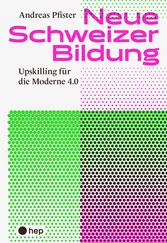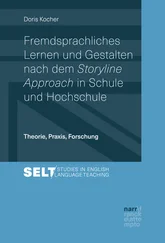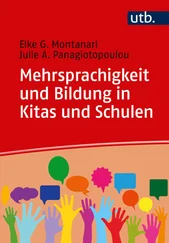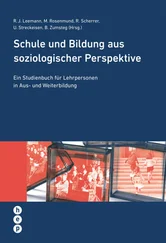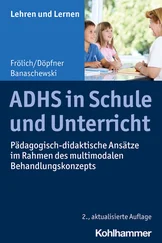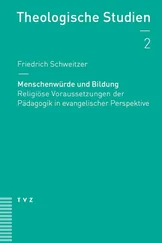James, W. (1981). The Works of William James. The Principles of Psychology. Cambridge, MA: Harvard University Press.
James, W. (1984). The Works of William James: Psychology: Briefer Course. Cambridge, Ma.: Harvard University Press.
Jensen, P. S., Arnold, E., Swanson, J. M., Vitiello, B., Abikoff, H. B., Greenhill, L. L., et al. (2007). 3-year Follow-up of the NIMH MTA Study. Journal of the American Academy of Child and Adolescent Psychiatry, 46, 989−1002.
Jha, A. P., Krompinger, J., & Baime, M. J. (2007). Mindfulness Training Modifies Subsystems of Attention. Cognitive, Affective & Behavioral Neuroscience, 7, 109−119.
Jha, A. P., Stanley, E. A., Kiyonaga, A., Wong, L., & Gelfand, L. (2010). Examining the Protective Effects of Mindfulness Training on Working Memory Capacity and Affective Experience. Emotion, 10(1), 54−64.
Kabat-Zinn, J. (1982). An Outpatient Program in Behavioural Medicine for Chronic Pain Patients Based on the Practice of Mindfulness Meditation: Theoretical Considerations and Preliminary Results. General Hospital Psychiatry, 4, 33−47.
Kabat-Zinn, J. (1998). Im Alltag Ruhe finden: Das umfassende praktische Meditationsprogramm für alle Lebenslagen. Freiburg: Herder.
Kaltwasser, V. (2008). Achtsamkeit in der Schule: Stille-Inseln im Unterricht: Entspannung und Konzentration. Weinheim: Beltz.
Kaltwasser, V. (2010). Persönlichkeit und Präsenz: Achtsamkeit im Lehrerberuf. Weinheim: Beltz.
Kaltwasser, V. Sauer, S. & Kohls, N. (2014). Mindfulness in German Schools (MISCHO): A Specifically Tailored Training Program: Concept, Implementation and Empirical Results. In S. Schmidt & H. Walach (Eds.), Meditation − Neuroscientific Approaches and Philosophical Implications (pp. 381−404). Cham, Heidelberg, Dordrecht: Springer.
Kihlstrom, J. F., Barnhardt, T. M., & Tartaryn, D. J. (1992). The Psychological Unconscious: Found, Lost, and Regained. American Psychologist, 47, 788−791.
Kuhl, J. (2000). A Functional-design Approach to Motivation and Self-regulation: The Dynamics of Personality Systems Interactions. In M. Boekaerts, P. R. Pintrich & M. Zeidner (Eds.), Self-Regulation: Directions and Challenges for Future Research (pp. 111−169). New York: Academic Press.
Kuhl, J. (2001). Motivation und Persönlichkeit: Interaktionen psychischer Systeme. Göttingen, Bern: Hogrefe.
Kuyken, W., Warren, F. C., Taylor, R. S., Whalley, B., Crane, C., Bondolfi, G., et al. (2016). Efficacy of Mindfulness-based Cognitive Therapy in Prevention of Depressive Relapse: An Individual Patient Data Meta-analysis from Randomized Trials. JAMA Psychiatry, 73, 565−574.
Kuyken, W., Watkins, E., Holden, e., White, K., Taylor, R. S., Byford, S., et al. (2010). How Does Mindfulness-based Cognitive Therapy Work? Behaviour Research and Therapy, 48, 1105−1112.
Lomas, T., Medina, J. C., Ivtzan, I., Rupprecht, S., & Eiroa-Orosa, F. J. (2017). The Impact of Mindfulness on the Wellbeing and Performance of Educators: A Systematic Review of the Empirical Literature. Teaching and Teacher Education, 61, 132−141.
Loyola, I. v. (1967). Geistliche Übungen. Übertragung und Erklärung von Adolf Haas. Freiburg: Herder.
Luhmann, N. (1984). Soziale Systeme. Grundriss einer allgemeinen Theorie. Frankfurt: Suhrkamp.
Lutz, A., Slagter, H. A., Dunne, J. D., & Davidson, R. J. (2008). Attention Regulation and Monitoring in Meditation. Trends in Cognitive Sciences, 12, 163−169.
Lynch, S., Gander, M. L., Kohls, N., Kudielka, B., & Walach, H. (2011). Mindfulness-based Coping with University Life: A Non-randomized Wait-list Controlled Pilot Evaluation. Stress and Health, 27, 365−375.
Lynch, S., Gander, M. L., Nahar, A., Kohls, N., & Walach, H. (2018). Mindfulness-Based Coping With University Life: A Randomized Wait-List Controlled Study. SAGE Open, 8(1), 2158244018758379.
McGilchrist, I. (2009). The Master and His Emissary: The Divided Brain and the Making of the Western World. New Haven: Yale University Press.
McKeown, T. (1982; orig. 1979). Die Bedeutung der Medizin: Traum, Trugbild oder Nemesis? Frankfurt: Suhrkamp.
Noë, A. (2009). Out of Our Heads: Why You are Not your Brain, and Other Lessons from the Biology of Consciousness. New York: Hill & Wang.
Raichle, M. E. (2006). The Brain’s Dark Energy. Science, 314, 1249−1250.
Raichle, M. E., et al., E. (2001). A Default Mode of Brain Function. Proceedings of the National Academy of Science USA, 98, 676−682.
Roberson, E. D., & Mucke, L. (2006). 100 Years and Counting: Prospects for Defeating Alzheimer’s Disease. Science, 314, 781−784.
Rubinstein, J. S., Meyer, D. E., & Evans, J. E. (2001). Executive Control of Cognitive Processes in Task Switching. Journal of Experimental Psychology: Human Perception and Performance, 27, 763−797.
Rupprecht, S. (2015). Achtsamkeit macht Schule?! Fördert ein Achtsamkeitstraining das Lehrerwohlbefinden und die Unterrichtsqualität? Norderstedt: Grin Verlag.
Rupprecht, S., Paulus, P., & Walach, H. (2017). Mind the Teachers! The Impact of Mindfulness Training on Self-regulation and Classroom Performance in a Sample of German School Teachers. European Journal of Educational Research, 6(4), 565−581.
Segal, Z. V., Williams, J. M. G., & Teasdale, J. D. (2002). Mindfulness-based Cognitive Therapy for Depression: a New Approach to Preventive Relapse. New York: Guilford Press.
Slagter, H. A., Lutz, A., Greischar, L. L., Francis, A. D., Nieuwenhuis, S., Davis, J. M., et al. (2007). Mental Training Affects Distribution of Limited Brain Resources. PLoS Biology, 5(6), e138.
Smallwood, J., Mrazek, M. D., & Schooler, J. W. (2011). Medicine for the Wandering Mind: Mind Wandering in Medical Practice. Medical Education, 45, 1072−1080.
Smallwood, J., & Schooler, J. W. (2006). The Restless Mind. Psychological Bulletin, 132, 946−958.
Stadtmüller, G., & Gordon, J. A. (2011). The Biological Correlates of Emotions. International Journal of Psychotherapy, 15, 6−24.
Trautwein, F.-M., Naranjo, J. R., & Schmidt, S. (2016). Decentering the Self? Preliminary Evidence for Changes in Self- vs. Other Related Processing as a Long-term Outcome of Loving-kindness Meditation. [Original Research]. Frontiers in Psychology, 7(1785).
Walach, H. (2007). Mind − Body − Spirituality. Mind and Matter, 5, 215−240.
Walach, H. (2014). Geist in der Flasche − vulgärer Materialismus auf dem Tisch: Kategorienfehler, unbequeme Daten und ein bescheidener Beitrag zum Leib-Seele-Problem. In J. Weinzierl & P. Heusser (Eds.), Was ist Geist? 2. Wittener Kolloquium für Humanismus, Medizin und Philosophie (Band 2) (pp. 85−121). Würzburg: Könighausen und Neumann.
Wallace, B. A., & Shapiro, S. L. (2006). Mental Balance and Well-Being: Building Bridges Between Buddhism and Western Psychology. American Psychologist, 61(7), 690−701.
Wells, R. E., Yeh, G. Y., Kerr, C., Wolkin, J., Davis, R. B., Tan, Y., et al. (2013). Meditation’s Impact on Default Mode Network and Hippocampus in Mild Cognitive Impairment: A Pilot Study. Neuroscience Letters, 556, 15−19.
Ystad, M., Hodneland, E., Adolfsdottir, S., Haász, J., Lundervold, A. J., Eichele, T., et al. (2011). Cortico-striatal Connectivity and Cognition in Normal Aging: A Combined DTI and Resting State fMRI study. NeuroImage, 55, 24−31.
Zenner, C. (2016). ABC fürs Leben − Sind Achtsamkeitsprogramme im Schulkontext ein wirksamer Ansatz?, Europa-Universität Viadrina, Frankfurt (Oder).
Zenner, C., Herrnleben-Kurz, S., & Walach, H. (2014). Mindfulness-based Interventions in Schools − a Systematic Review and Meta-analysis. Frontiers in Psychology, 5(doi: 10.3389/fpsyg.2014.00603), art 603.
ACHTSAMKEIT IN SCHULE UND LEHRERINNEN- UND LEHRERBILDUNG
Susanne Krämer
Lehrpersonen stehen im Spannungsfeld, ein stetig anwachsendes Fachwissen zu vermitteln und dem weitgespannten Beziehungsnetz von Schulleitung, Kolleginnen und Kollegen, Eltern sowie Schülerinnen und Schülern gerecht zu werden. Die vielfältigen Herausforderungen, die sich dadurch ergeben, haben Auswirkungen auf Gesundheit und Wohlbefinden.
Читать дальше



